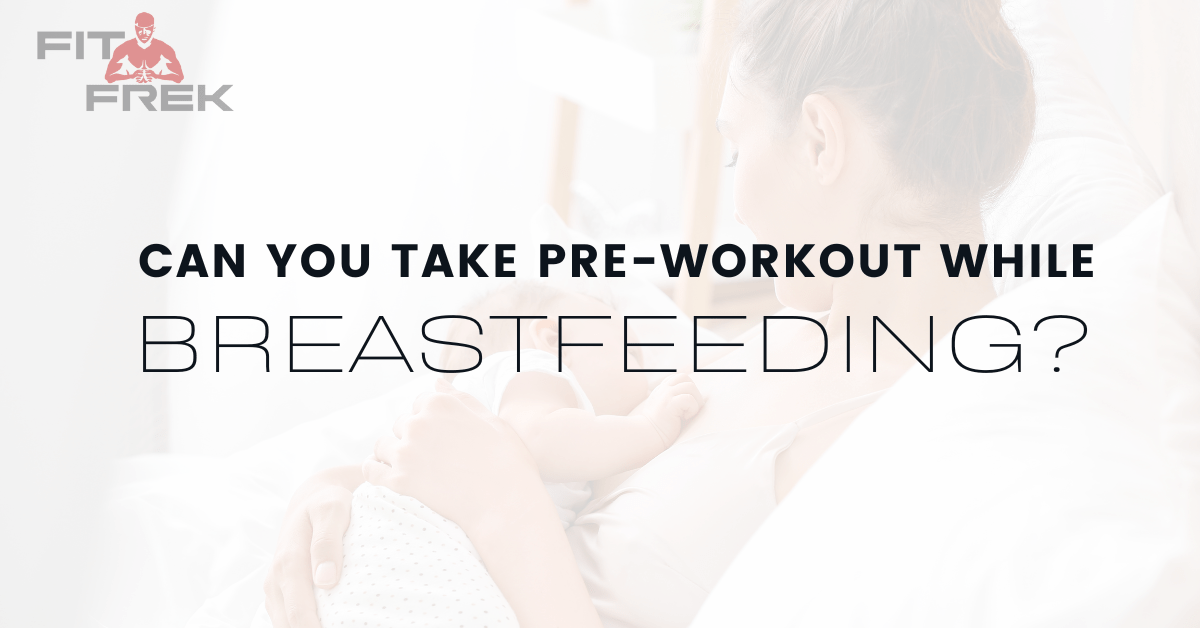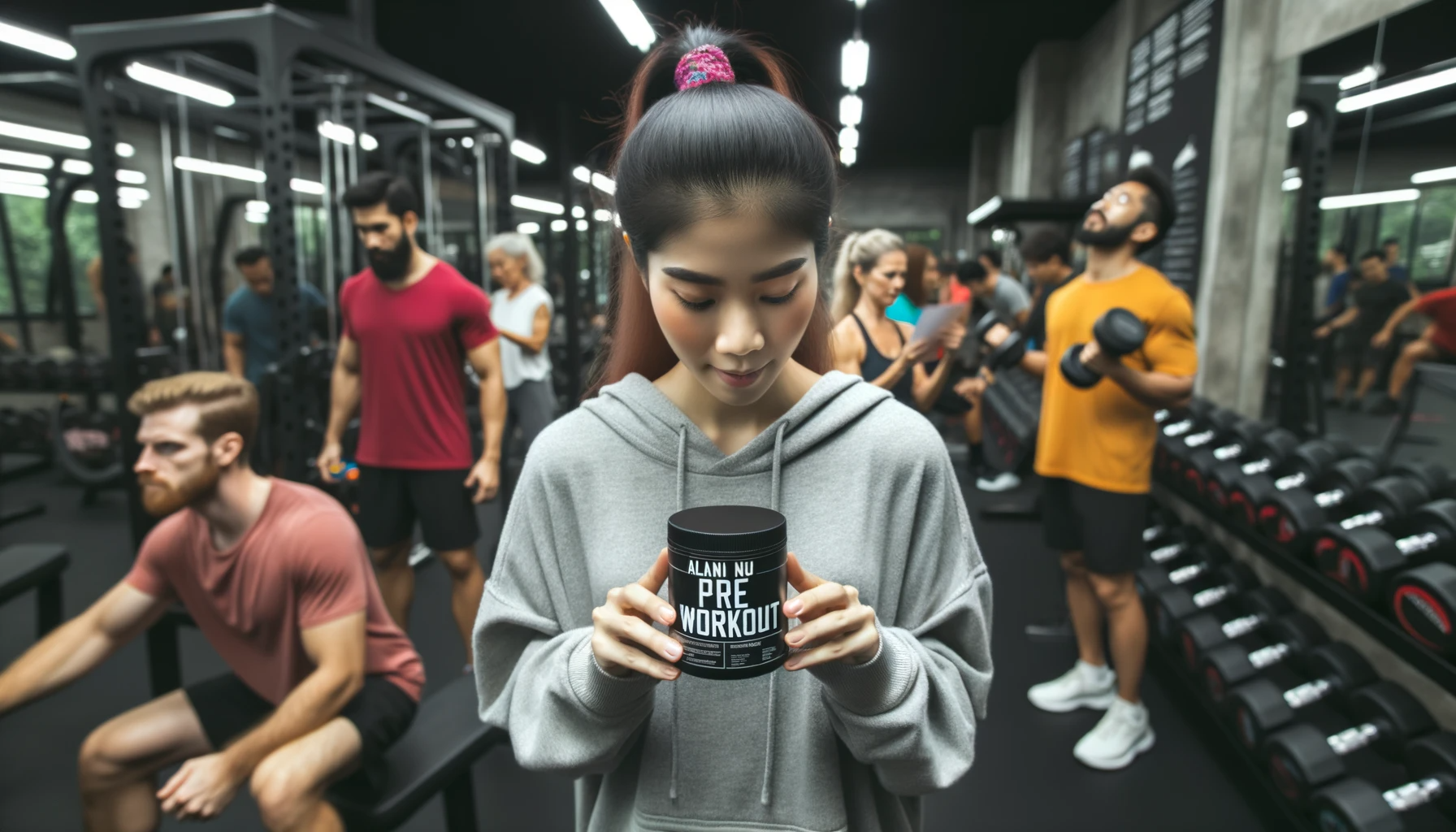






Exploring the realm of fitness and nutrition, particularly pre-workout supplements, becomes a nuanced topic for breastfeeding mothers.
These supplements, designed to enhance energy and workout performance, contain various ingredients that necessitate careful consideration in nursing.
Pre-workout supplements can be cautiously used during breastfeeding, focusing on products with lower caffeine content and avoiding harsh stimulants.
It's crucial to consult with healthcare providers and monitor both mother's and baby's responses to ensure safety

re-workout supplements are formulated to boost energy, improve endurance, and enhance overall workout performance.
Common ingredients include caffeine for alertness, citrulline for blood flow enhancement, and beta-alanine for reducing muscle fatigue.
Breastfeeding mothers must be aware of the potential risks associated with pre-workout ingredients.
These components, particularly in high doses, can affect both the mother and the infant, with caffeine being a primary concern due to its widespread presence in these supplements.
Caffeine, a central nervous system stimulant, is a key ingredient in many pre-workout supplements.
Its effects on energy levels and alertness are well-documented, but its impact during breastfeeding is complex.

The dietary supplement industry, including pre-workouts, operates with less stringent FDA regulations than prescription medicines.
This lack of tight regulation can lead to inconsistencies in the quality and safety of these products.
Understanding The Regulatory Landscape
The dietary supplement industry, including pre-workouts, is not tightly regulated by the FDA.
This lack of regulation can lead to inconsistencies in product quality and safety, making it vital for consumers, especially breastfeeding mothers, to be vigilant about the supplements they choose.
For breastfeeding mothers, natural energy sources such as fruits, nuts, and whole grains can provide a safer alternative to pre-workout supplements.
Gentle exercises like yoga or walking can also help maintain fitness without needing supplements.

Breastfeeding mothers should be cautious of ingredients like high levels of caffeine, artificial sweeteners, and certain herbal extracts in pre-workout supplements, as they can potentially affect breast milk and the infant's health.
Watch Out For These
Apart from caffeine, other ingredients to be wary of include:
Understanding the Regulatory Landscape
The dietary supplement industry, including pre-workouts, is not tightly regulated by the FDA.
This lack of regulation can lead to inconsistencies in product quality and safety, making it vital for consumers, especially breastfeeding mothers, to be vigilant about the supplements they choose.
When considering pre-workout supplements during breastfeeding, it's crucial to be aware of certain ingredients that might be harmful or cause unwanted side effects.
Here's a breakdown of ingredients to be cautious about:

Containing over 20g per serving, Bulk contains complete doses of ergogenic aids and a range of nootropics and stimulants to help enhance energy.
Alani Nu pre-workout is a well-formulated supplement that combines taste and performance, offering a range of delicious flavors and effective ingredients to enhance your workout.
Both of these products are formulated with attention to safety and efficacy, making them suitable options for breastfeeding mothers who need an extra boost for their workouts.
However, it's always recommended to consult with a healthcare provider before starting any new supplement regimen during breastfeeding.
Expert Guidance Is Key
Every individual's situation is unique, especially regarding health and nutrition during breastfeeding.
Consulting with healthcare providers ensures you receive advice tailored to your needs and circumstances.

Addressing Common Concerns
Is it safe to use pre-workout supplements while breastfeeding?
While some pre-workout ingredients may be safe, avoiding high caffeine levels and other stimulants is essential. Always consult with a healthcare provider before using any supplements during breastfeeding.
Can pre-workout supplements affect breast milk?
Yes, certain ingredients, especially caffeine, can pass into breast milk and may affect the baby. It's crucial to choose supplements with safe ingredients and lower caffeine content.
What are the best pre-workout supplements for women, especially breastfeeding ones?
Supplements with lower caffeine content and without harsh stimulants are preferable. For a comprehensive guide, check out the best pre-workouts for women, which includes options suitable for breastfeeding mothers.
Are natural pre-workout alternatives safer during breastfeeding?
Natural alternatives like fruits, nuts, and adequate hydration can be safer and provide a gentle energy boost without the risks associated with certain supplement ingredients.
How much caffeine is safe in pre-workout supplements for breastfeeding mothers?
Limiting caffeine intake to about 200-300 mg per day during breastfeeding is generally advised. Always check the caffeine content in pre-workout supplements to stay within this limit.
Can pre-workout supplements help with postpartum weight loss?
While they can provide an energy boost for workouts, it's important to focus on a balanced diet and safe exercise routines for postpartum weight loss. Consult a healthcare provider for personalized advice.
What are the differences between Tongkat Ali and Maca, and are they safe during breastfeeding?
Tongkat Ali and Maca are herbal supplements with different health benefits. While they are generally safe, their safety during breastfeeding hasn't been extensively studied. For more insights, explore Tongkat Ali vs. Maca.
Can I use fat burners along with pre-workout supplements while breastfeeding?
It's advisable to be cautious with fat burners, especially during breastfeeding. Products like PhenGold and Trim Tone have different formulations. For a detailed comparison, see PhenGold vs. Trim Tone Fat Burner.
What should I do if I experience side effects from a pre-workout supplement while breastfeeding?
If you experience any adverse effects, stop using the supplement immediately and consult with a healthcare provider.
Are there specific ingredients in pre-workouts that breastfeeding mothers should avoid?
Besides high levels of caffeine, avoid ingredients like Yohimbe, DMAA, and excessive vitamins and minerals. Choose supplements with transparent labeling and safe ingredient profiles.
To conclude, while pre-workout supplements offer significant benefits for fitness enthusiasts, breastfeeding mothers must approach them with caution.
Understanding the ingredients, seeking professional advice, and opting for natural alternatives can help ensure the health and safety of both mother and child.



Useful Links
 About FitFrek
About FitFrekFitFrek operates as an independent platform, offering comprehensive workouts, programs, routines, guides, and unbiased reviews to accelerate your progress. We pride ourselves on our honesty, delivering straightforward and candid insights. FitFrek does not offer medical advice, diagnosis, or treatment services.